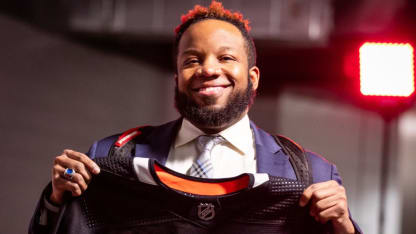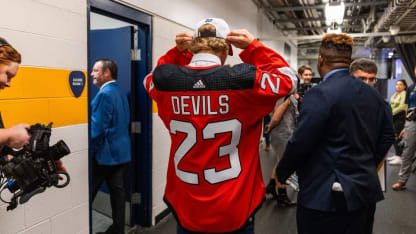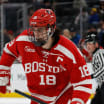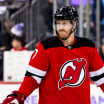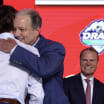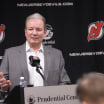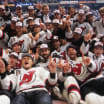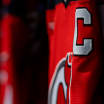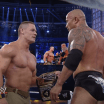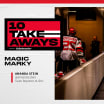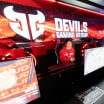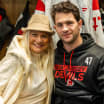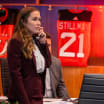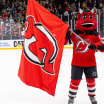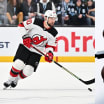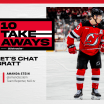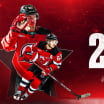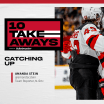James Lipscomb is in his third season with the Devils as the team’s facilitator of hockey information and operations. His role covers a vast swath of responsibilities, from handling logistics for scouts and development camp to assisting the club’s Public Relations staff and everything in between. It’s all part of Lipscomb’s dream of working his way up to be a General Manager in the National Hockey League. As a Black man, Lipscomb brings a unique perspective to his role and the job of growing the sport. He spoke with the New Jersey Devils website about this job, aspirations and Devils fandom ahead of the team hosting its Black History Celebration Night on Thursday against the Vegas Golden Knights.
As a facilitator, can you explain your day-to-day role in hockey operations?
When I hear "facilitator," I think of someone who does a bit of everything. I assist PR and the Communications staff, help with player meet-and-greets, coordinate post-game interviews and support media days. I also handle operational logistics, like ordering office supplies, hard drives for the coaching staff, or packing tape for the locker room.
On the operations side, I work closely with (Assistant General Manager) Kate Madigan, (General Manager) Tom Fitzgerald, (Director, Hockey Operations) Scott Litwack and (EVP, Hockey Operations) Martin Brodeur. I sit in on draft and amateur scouting meetings, which is one of the coolest aspects of the job, especially since my long-term goal is to be a general manager. It’s invaluable to hear how they evaluate talent and plan for the team’s future. I also collaborated with (Director, Player Development) Meghan Duggan on player development and helped organize development camp last year while she was on maternity leave. That experience involved everything from coordinating hotel rooms to scheduling buses.
Ultimately, my role is about working with the people who make this organization run and finding ways to leave my mark on a well-oiled machine.
With your goal of becoming a GM, have you studied different paths to that role?
Definitely. One of my game-day tasks is running stats up to the visiting GM’s booth. Sometimes, I use that as a networking opportunity – an elevator pitch moment. I’ve asked GMs how they got to where they are, and the answers vary. Some emphasize scouting and player evaluation, while others came from different backgrounds, like agency work.
There’s no set path, which gives me hope. The road I’m on might not work for everyone, but it could be the one that works for me.
You also track where all the scouts are, right?
Yes, I act as a liaison for both amateur and pro scouts. If a scout needs a new computer, I coordinate with IT. When we had midseason (over midterm) meetings in Florida, I personally delivered new laptops and collected the old ones.
For pro scouts, I monitor their travel schedules and send credential requests to other teams. I keep everything organized so they can focus on their work.
As the trade deadline approaches, how does your role change?
The hours get longer. I’ve built enough trust that I’m allowed to be in the room during trade discussions, but I mostly observe. This is my third season, and during trade deadline week, I’ve probably spoken no more than five words.
I just listen, absorb information, and learn from the experts. One day, I want to be in that room in a leadership role, so I treat this as preparation for the future.

